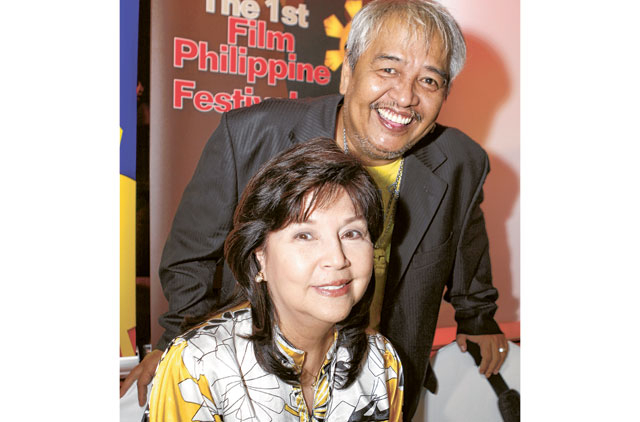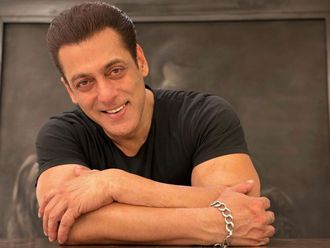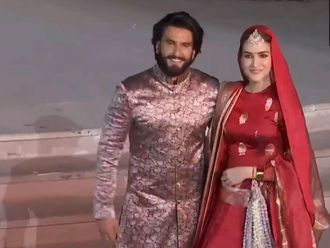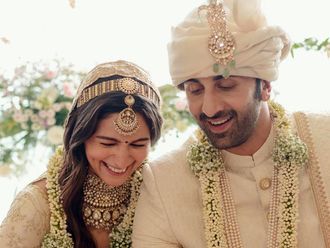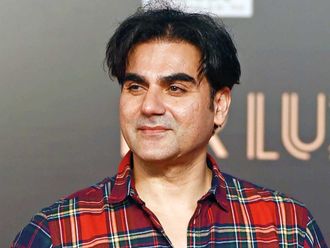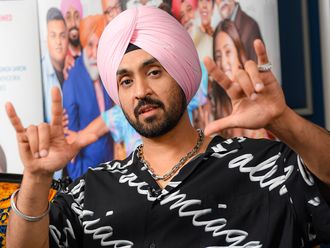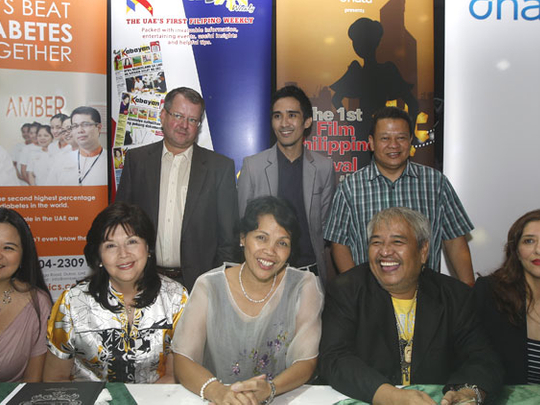
The first Philippine Film Festival in the UAE finally rolled out its red carpet on Friday afternoon with Filipino film luminaries attending the two-day event. Organised under the theme "Our Films, Our Culture", the festival featured four award-winning Filipino movies screened in selected theatres in Dubai.
The film festival, organised by Kitsch Company in partnership with the Movie Workers Welfare Fund (Mowelfund), a Philippine-based organisation of actors and film industry workers founded by former Philippine president Joseph Estrada, opened with a free symposium with Mowelfund executive director Boots Anson-Roa and actor-director Soxie Topacio as speakers.
"It took us about a year to make this event happen with a lot of planning and coordination. It took us very long to have a Filipino film festival here in the UAE for many reasons; the local sensitivities that we need to consider when showing our films here is one of the major factors, along with the huge cost of having such an event," said Johann Obet Conti Ramos, managing partner of Kitsch Company, who also announced that they will be organising the festival annually.
The symposium included a screening of "Botelya", which casts Anson-Roa with Anita Linda, Caridad Sanchez, Angel Aquino, Alessandra de Rossi, Katrina Halili, and Rosa Rosal. Botelya, a bronze winner at Cannes in 2009, spans three generations of mothers separated by divergent social conditions but united in their selfless and unconditional love to their children.
The period film "Rosario", directed by award winning actor-director Albert Martinez, and the comedy drama "Ded na si Lolo", directed by Topacio, were the first films screened on Friday. Rosario, set in the 1920s, is about the true story of a young and liberated Filipino woman, Rosario, played by popular Philippine actress Jennylyn Mercado, who defied conventions and risked her comfortable life for the love of her life. "Ded na si Lolo" (Grandpa is Dead), which features a veteran cast that includes Gina Alajar, Roderick Paulate and Elizabeth Oropesa, brings to the big screen a contemporary and comic take on a family's way of dealing with their loss and grief. The film was the Philippines' entry in the foreign-language film category of the 82nd Oscar awards.
Yesterday, a workshop was conducted by Anson-Roa and Topacio about the state of the Philippine film industry, while the romantic musical drama "Ganito Kami Noon... Paano Kayo Ngayon?" (We Were Like This Before, How Are You Today?) was also screened. Directed by Eddie Romero, the film is set in the Spanish colonisation era and stars Christopher De Leon and Gloria Diaz.
Philippine Ambassador to the UAE Grace Relucio-Princesa, who graced the festival, pointed out the significance of holding a Filipino film festival in the UAE. "Culture transcends boundaries; culture connects hearts and souls. As the UAE celebrates its 40th anniversary, Filipinos have been part of the country's phenomenal growth. With the Philippine Film Festival, it is fitting that we also show the rich culture that we have."
The guest speakers noted that the Philippines may be on the way to a third golden era in filmmaking.
"We may be reaching another golden age of Filipino films. The first was during the 1950s, when Filipino movies were first recognised internationally, specifically at the Cannes Film Festival where Manuel Conde's Genghis Khan was the first Filipino film to have been entered in a significant category," said Anson-Roa.
"It was also during those years when the Filipino film industry flourished in the sense that many Filipino films were produced. There was healthy competition. Movie stars were at their height in terms of recognition and even glamour.
"In the 1970s, Filipino films soared again, led by notable filmmakers such as Lino Brocka and Ishmael Bernal," said Anson-Roa.
Topacio notes that the melding of mainstream and independent film industries has played a big part in driving the movie industry forward. "Lately, we have seen the marriage of mainstream movies and independent films in the Philippine cinemas. Before it was really a problem; people were claiming that mainstream films were not sensible, while indie films were of low quality in terms of technical aspects.
"But now, filmmakers and producers see the need to help out each other. We don't need to fight or compete, we need to help each other to bring world-class films that can compete internationally. The rise of indie filmmakers is really good. They have a lower budget, but still produce quality films. Now you can see indie film actors doing mainstream movies and vice versa."
The past few years have seen a growing list of award-winning Filipino filmmakers such as Brillante Mendoza and Auraeus Solito, which has brought a sign of rebirth for the industry after suffering a major decline at the turn of the century.
"Filipino films are gaining awards again locally and internationally. Thanks also to the influx of indie films in digital format. They have made a niche in the past years. So, hopefully, this year and the coming years will witness the third golden age of Philippine cinema," said Anson-Roa.
"Culture transcends boundaries; culture connects hearts and souls."
— Grace Relucio-Princesa
Philippine Ambassador to the UAE


